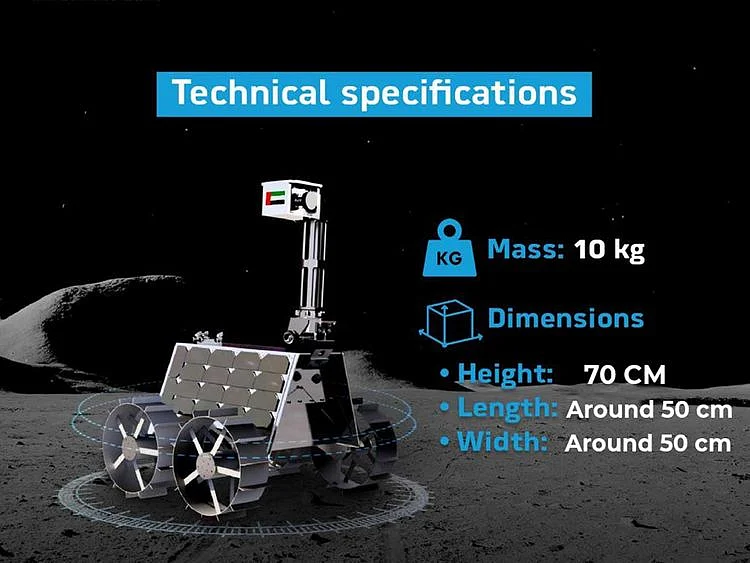Dubai: Two optical cameras that will provide high-resolution images in full high definition (HD) will be installed on Rashid Rover, which is set to land on the moon’s surface next year, the Mohammed Bin Rashid Space Centre (MBRSC) announced on Monday.
MBRSC has partnered with French space agency CNES (National Centre for Space Studies) for the Emirates Lunar Mission. Under the Emirati-French-agreement, CNES will provide MBRSC with two Caspex (Camera for space exploration) that can withstand vibrations during launch or landing.
Using microlenses and colour filter array, Caspex is based on the last generation of image sensors and has a dedicated high dynamic range (HDR) method to provide high-resolution and high-quality coloured images.
Panoramic visibility
According to MBRSC, one Caspex will be installed on top of the rover’s mast to provide panoramic visibility of the rover surroundings while the rear-mounted CASPEX camera will deliver images of the lunar soil with high spatial resolution.
“The latter’s images of the drive tracks will be analysed to determine wheel sinkage and to investigate the detailed wheel-soil interaction. Such data will be important to design the mobility systems of future rovers,” MBRSC noted.
Yousuf Hamad AlShaibani, MBRSC director-general, said: “The UAE aims to lead an innovative and sustainable exploration of the moon through the Emirates Lunar Mission. Our partnership with CNES is a continuation of the already great collaborative effort with France and we will continue to strengthen it further. We believe that collaboration is the way forward for space exploration, and the more we work together to tackle challenges for the good of humanity, the greater our collective prospects for the future.”
Philippe Baptiste, chairman and CEO of CNES, added: “I am glad to add today a new milestone and a new destination to the longstanding partnership between France and the UAE. With MBRSC we have developed a fruitful and mutually beneficial cooperation. It will allow us not only to take French technology to the Moon and bring back data for our scientists but most and foremost to strengthen the relations between our respective technology and scientific ecosystems.”
Emirati rover
Rashid, an Emirati-made lunar rover named after the late Sheikh Rashid bin Saeed Al Maktoum, is the smallest and lightest rover to be deployed on the surface of the moon. Its height is 70cm, length is 50cm and width is 50cm. Its weight is approximately 10kg with payload.
Rashid will be launched next year, two years ahead of the original schedule. The exact landing site is yet to be revealed, but the rover will travel to a part of the moon that has never been reached before. Its mission is to better understand how lunar dust and rocks vary across the moon.
Sign up for the Daily Briefing
Get the latest news and updates straight to your inbox
Network Links
GN StoreDownload our app
© Al Nisr Publishing LLC 2026. All rights reserved.
